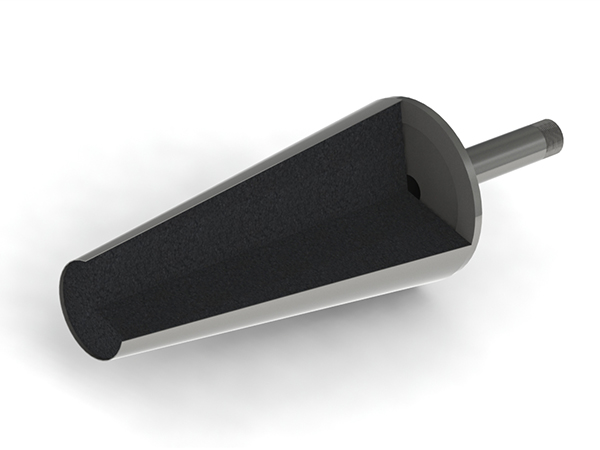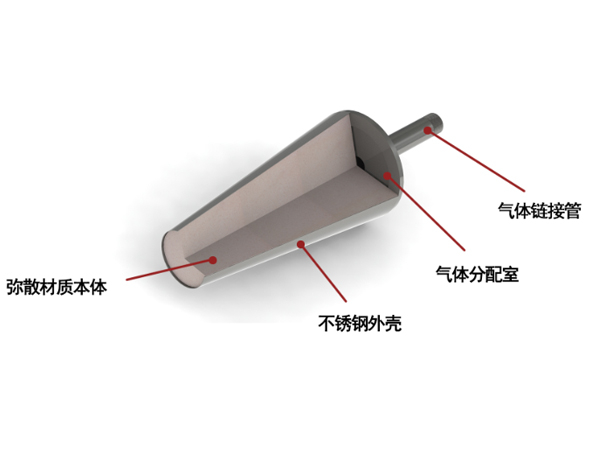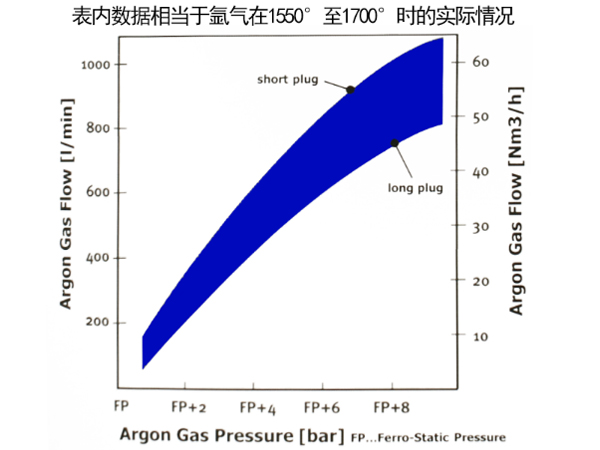- 06
- Sep
Dispersion type breathable brick core
Dispersion type breathable brick core

उत्पादन नाम: Dispersion type breathable brick core
Category: Dispersion type breathable brick core
Dispersed air-permeable bricks have high porosity and permeability. In actual production, by adding carbon-containing compounds to the mixture, the material can be burned at low temperature without residue, so the initial porosity can be obtained by burning out the intermediate material at low temperature. Diffusion-type air-permeable bricks are distributed with interpenetrating pores of different sizes. When the air blowing is stopped during use, the steel and slag in the ladle will penetrate into the deeper areas of the air-permeable brick through these pores, thus producing on the working surface. Solid parts. When the ladle is stopped or when the air is restarted, the working surface of the air-permeable brick is periodically infiltrated and eroded by the molten steel, causing the pores to be blocked, blown out or peeled off.
प्रदर्शन:
1. Slag resistance
In order to improve the material’s slag resistance and liquid steel penetration resistance, Cr2O3 or part of chromium corundum is usually added to corundum spinel air-permeable bricks. Cr2O3 and a-Al2O3 have the same crystal structure. Cr2O3 not only improves the slag resistance of the material, but also increases the wetting angle between the material and the molten steel, and significantly improves the blockage of the pores of the breathable brick due to the penetration of molten steel.
Using Cr2O3 fine powder and Al2O3 at high temperature to form the aluminum-chromium solid solution and the existing chromium-containing glass phase, the liquid phase formed when it comes into contact with the slag in the molten steel smelting process has a fixed viscosity, thereby preventing the slag in the molten steel from affecting the breathable brick Corrosion; At the same time, it can absorb iron oxide and magnesium oxide in the slag, and form dense spinel in the working layer of the ventilating brick, which improves the slag resistance of the ventilating brick.
However, after adding Cr2O3 to the material, after high-temperature firing or use, Cr3+ is oxidized to Cr6+, which is toxic and pollutes the environment. Therefore, for energy conservation and environmental protection, the use of Cr2O3 should be avoided as much as possible, and by replacing raw materials, the high temperature performance without adding Cr2O3 can reach the level of adding Cr2O3.
The. थर्मल आघात प्रतिरोध
The main damage method of air-permeable bricks is thermal shock damage. With the continuous increase of the tapping temperature, there is a large temperature difference between working and intermittent work on the working surface of the ventilating brick, which requires the material to have high thermal shock resistance. The spinel phase is introduced into the castable, and the thermal shock resistance of the air-permeable brick will be improved.
The oxide or non-oxide added in the ventilated brick forms a solid solution phase with the aggregate at high temperature, increases the high-temperature strength of the brick, improves the permeability of the brick, and resists the erosion of the ventilated brick by the molten slag in the ladle. After the high temperature heat treatment of the air-permeable brick, its performance is improved to meet its use requirements.


